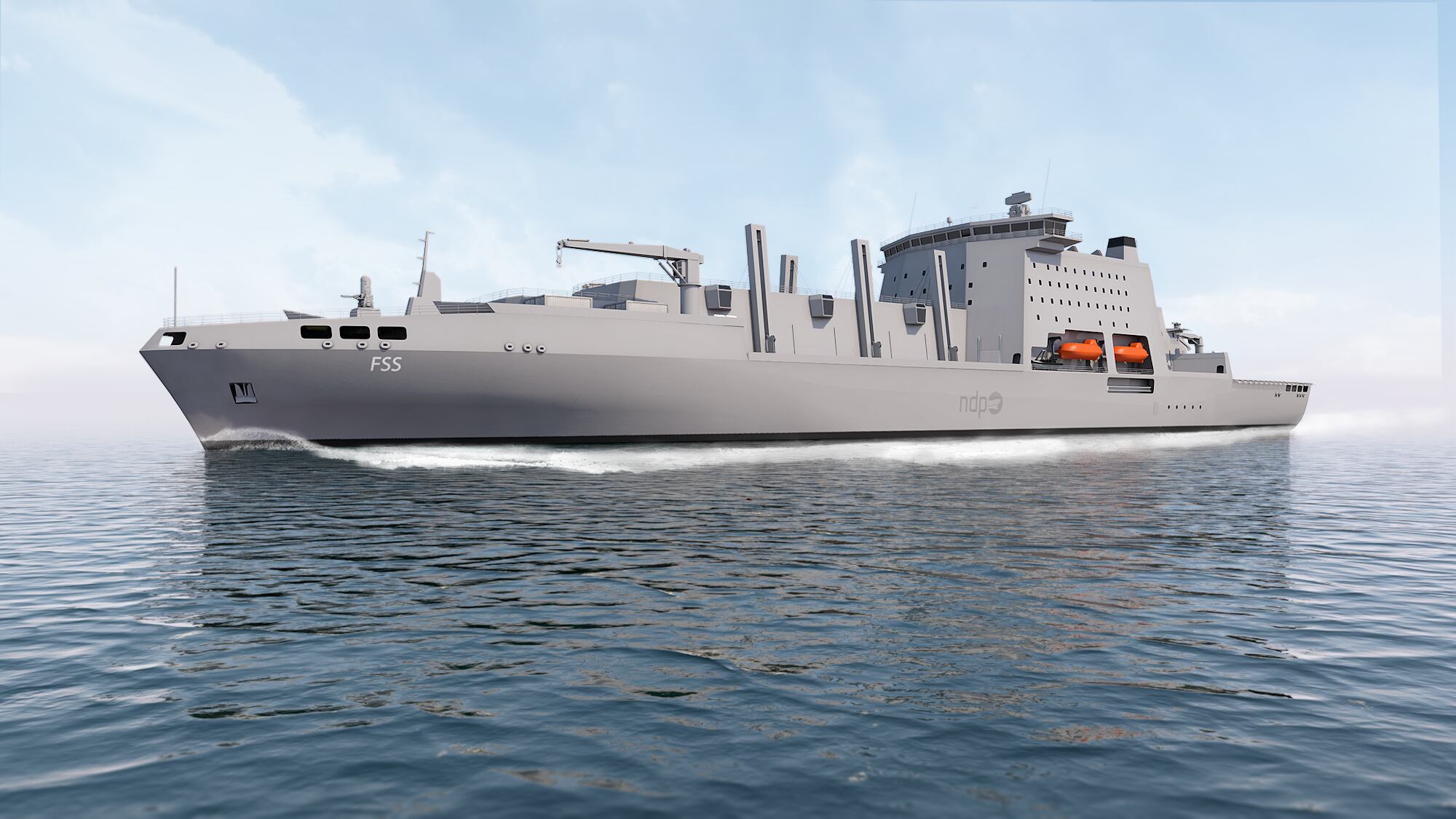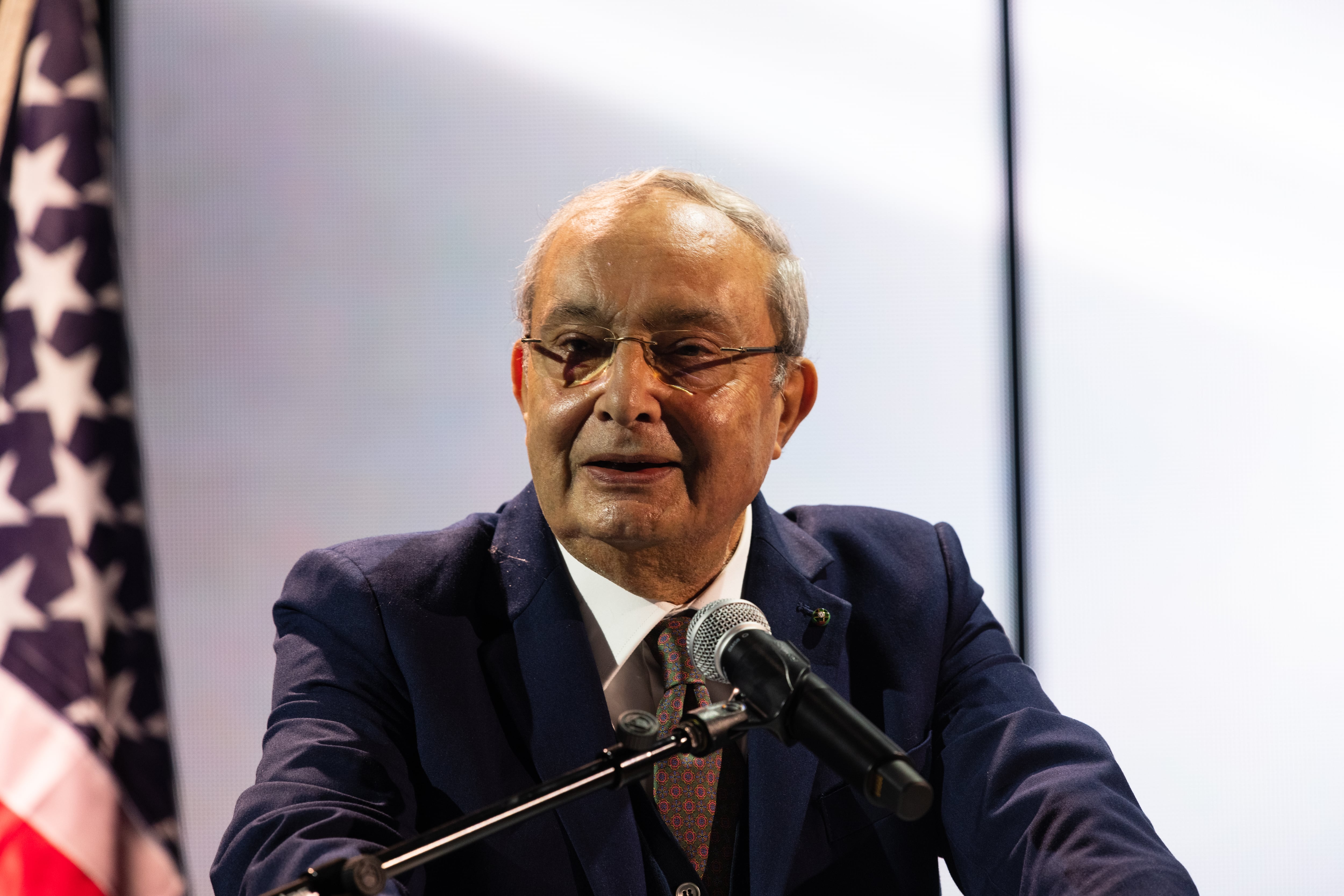LONDON — Spanish shipbuilder Navantia has formed a joint venture with Northern Ireland’s Harland & Wolff to pitch for an upcoming program to build up to three logistics ships to support the Royal Navy’s new Queen Elizabeth-class aircraft carriers.
The Anglo-Spanish partnership, known as Team Resolute, has been announced as expectations grow that the British Ministry of Defence is preparing to reopen a competition to build two, or maybe three, ships capable of delivering ammunition, dry stores and spares in a requirement known as the Fleet Solid Support program.
The MoD pulled the plug on the competition late last year claiming the bids did not represent value for money.
With the competition poised to be restarted around September, Team Resolute is the first to show its hand.
Navantia, one of Europe’s leading shipbuilders, and Harland & Wolff have been working together for a while under a memorandum of understanding but the two have now firmed that up into a joint venture agreement as the MoD prepares to restart with a new procurement strategy.
The third player in the Team Resolute line-up is British naval design company BMT. Although not a joint venture member, BMT will participate as a subcontractor providing the design. The company worked with Navantia in the original competition.
The design house has built a reputation in recent years of providing designs to navies around the world, including oilers for Britain and multi-role logistics ships for Norway, both based on its AEGIR design.
RELATED

For Harland & Wolff, the Belfast yard famous for building the Titanic, it’s the latest move in an effort to revive fortunes after the company almost went out of business last year before current owners InfraStrata acquired the operation.
InfraStrata, a small British company looking to develop a huge underground gas storage facility just up the coast from Belfast, plans to use Harland & Wolff to undertake much of the fabrication work required on the energy program as well as seek to build a credible shipbuilding and support business.
John Wood, CEO of InfraStrata, said the partnership with Navantia could open up the possibility of challenging a status quo which has seen BAE Systems and Babcock dominate the maritime sector here.
“This partnership has the capability to disrupt the UK defence shipbuilding and through-life support duopoly that currently exists, as well as providing much needed competition in the defense sector to ensure optimum value for taxpayer money and guaranteed delivery," said Wood.
“The Fleet Solid Support program gives us the opportunity to take the expertise in depth that Navantia and BMT have in order to put together a really strong offering based on a best-value-for-money strategy," he said in a telephone interview with Defense News.
The yard only employs 130 people at present but Wood said there was plenty of expertise available not least among the 1,200 skilled staff who were laid off at Harland & Wolff prior to the InfraStrata acquisition.
Navantia and a British group calling itself TeamUK – led by Babcock and including BAE Systems, Cammell Laird and Rolls-Royce – were the two contenders competing the final stages of the Fleet Solid Support program when the MoD called a halt to the competition amid a growing controversy over the fact that the competition had been opened to foreign bidders and not reserved for local companies.
The British government claimed its was acting under European Union regulations as the support vessels were not warships.
Britain has now left the European Union but remains subject to its rules and regulations while the two sides try to negotiate a trade deal.
Now the MoD is preparing to recompete the requirement, which could be worth approaching $1.9 billion if all three ships are purchased for the Royal Fleet Auxiliary, the support arm of the Royal Navy.
A spokesperson for TeamUK said the group was formed to deliver prosperity benefits for the local economy.
“We look forward to understanding the updated requirements when the Ministry of Defence announces their future plans for this procurement process,” said the spokesperson.
Babcock and BAE dominate the shipbuilding business in the UK and have significant contracts building the Type 31 and Type 26 frigate programs, respectively.
RELATED

Few outside the government know whether the new invitation to negotiate will leave the door open to foreign bidders and what the requirement will actually look like.
Some analysts think the damage the Covid-19 crisis has done to the economy should rule out foreign bidders, giving priority to high local content to boost jobs and skills.
The conundrum is, though, that as a result of the virus, the MoD is likely to have less money rather than more in future budget deliberations, putting even greater pressure on finding the best value for money solution.
Wood says he is open-minded about which way the MoD jumps on the issue of foreign bidders.
“Who knows where this will go. They are looking for value for money. What we are saying is they can have the best of both worlds with some outside influence from Navantia, a leading shipyard that has massive pedigree, and local company BMT supporting H&W, which has the best facilities for this kind of project in the UK. If we gear up for an international competition we are confident we can come through and put a credible bid on the table. If it’s UK bidders only, we think we can do the same,” said Wood.
Infrastrata’s CEO said a manufacturing role for Navanti has not been ruled out.
“There could be workshare going to Spain. There could be components or blocks coming from Spain, but the agreement we have is to do the majority of the work in the UK. It’s really about coming up with a project that fits the delivery schedule. Until we get the timelines nothing is ruled in and nothing ruled out. The key fundamental is it’s a British cooperation, with the ability to reach back into Navantia,” he said.
The executive said the plan was to spread the work beyond Harland & Wolff into other parts of the UK.
“We are looking at opportunities in the UK on fabrication. We may also look at another acquisition in the UK to spread the work wider,” he said.
Save the Royal Navy, a well regarded online group campaigning to reverse the decline of the Britain’s naval forces, speculated recently that rather than buying two or three large Fleet Solid Support ships the MoD may look at altering the requirement and buying several smaller, cheaper, multi-role logistics ships as part of a wider update to British maritime support requirements.
Andrew Chuter is the United Kingdom correspondent for Defense News.








